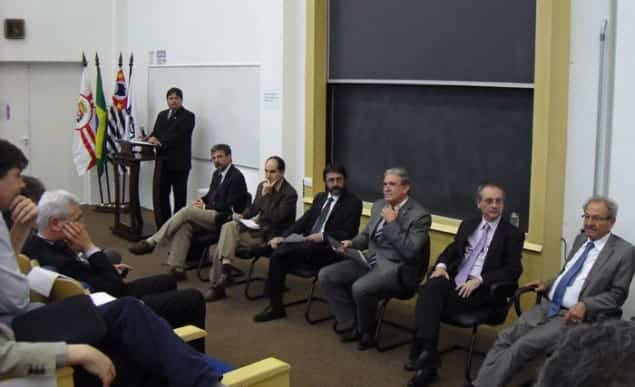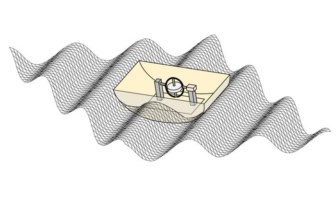
A new centre for theoretical physics has opened in Brazil that aims to become one of the leading research institutes in South America. The centre – named after the renowned International Centre for Theoretical Physics (ICTP) in Trieste, Italy – will be located at Universidade Estadual Paulista (UNESP) in Sao Paulo. Known as the ICTP South American Institute for Fundamental Research (ICTP-SAIFR), the new centre was officially opened on 6 February in a ceremony attended by the president of the Brazilian Academy of Science, Jacob Palis, as well as Peter Goddard, director of Institute for Advanced Study, Princeton, US.
The ICTP-SAIFR has been created in a collaboration between the ICTP, UNESP and the Sao Paulo Research Funding Agency. Its activities are modelled on those of the ICTP and will begin with the centre holding international schools and workshops. Among the first events will be a workshop on gravity and string theory in May and a school on astrophysics and cosmology in July.
Initially, there will be five permanent researchers as well as a director, who is the Brazilian physicist Nathan Berkovits. The centre expects to support about a dozen postdocs positions per year as well as playing host to a number of international visitors and students. Hiring for the permanent and postdoc positions is still on going, with the theoretical physicist Fernando Quevedo, who is director of the ICTP in Trieste, saying that selection will “follow the highest international standards and we expect to select simply the best candidates, independent of their origin”.
With a budget of about $1m per year, the institute also will have an active visitors’ programme. “We very much hope that this will be only the beginning of a great new project that will increase the scientific level of the region and that will play a major role in international scientific collaboration,” Quevedo told physicsworld.com. “I have the highest hopes [for this institute].”
Berkovits told physicsworld.com that the idea for the institute emerged eight years ago but accelerated once Quevedo became director of the ICTP in 2009. “The ICTP was crucial for the creation of this institute,” says Berkovits. “It is, of course, exciting and a great challenge to start this new institute.”
The opening of the new centre is part of a five-year plan to expand the ICTP into other countries, especially in the developing world. “Brazil, India and China are playing a more relevant role worldwide,” says Quevedo. “The scientific level of Brazil in very high and a centre located there can therefore play the same role for South America that ICTP has been playing worldwide.”



